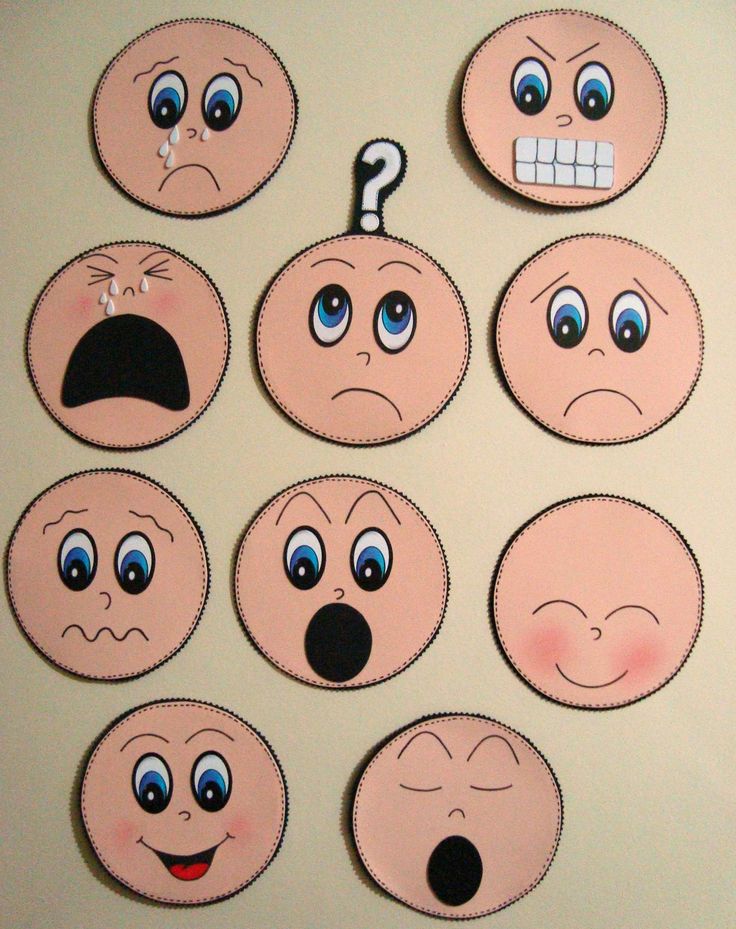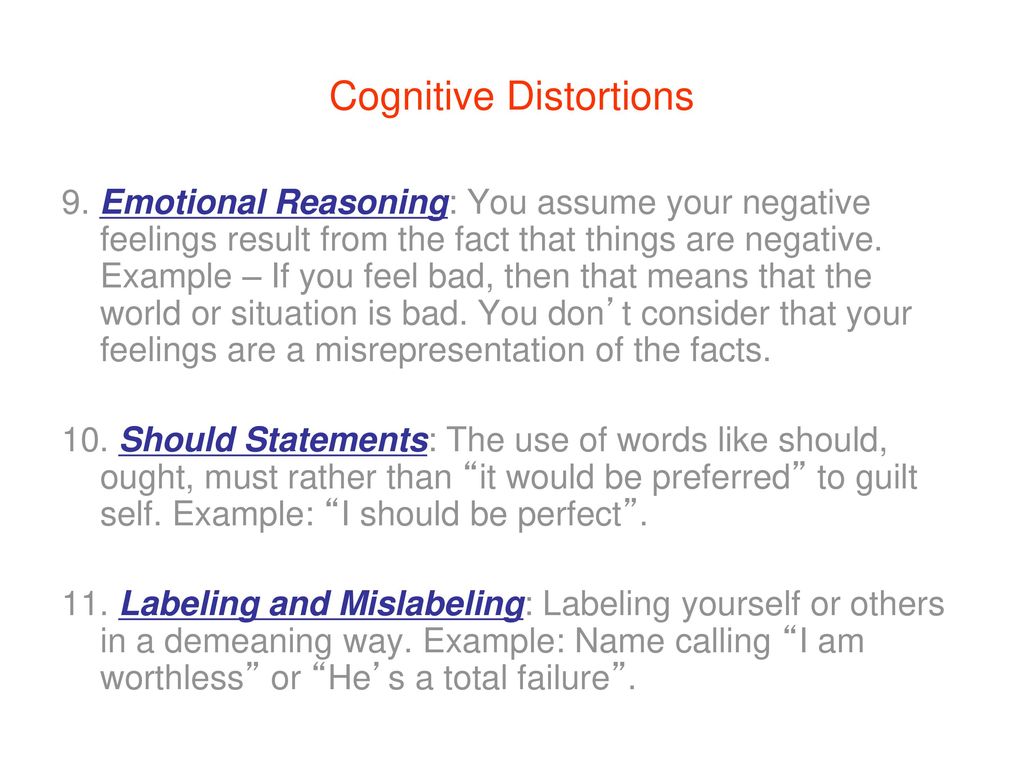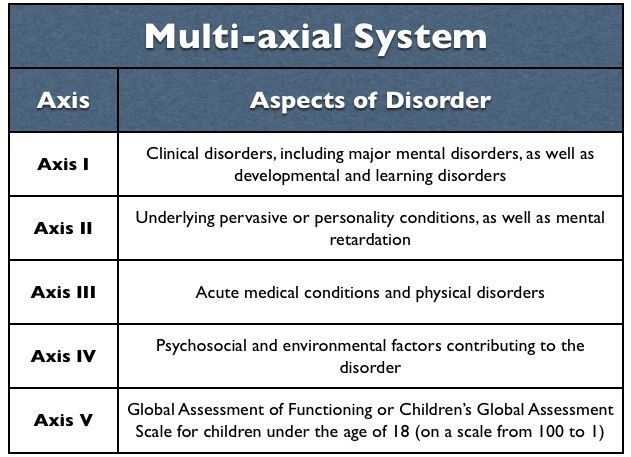Positive thinking heals
The Power of Positive Thinking
Here’s heartwarming news: People with a family history of heart disease who also had a positive outlook were one-third less likely to have a heart attack or other cardiovascular event within five to 25 years than those with a more negative outlook.
That’s the finding from Johns Hopkins expert Lisa R. Yanek, M.P.H., and her colleagues. The finding held even in people with family history who had the most risk factors for coronary artery disease, and positive people from the general population were 13 percent less likely than their negative counterparts to have a heart attack or other coronary event.
Yanek and her team determined “positive” versus “negative” outlook using a survey tool that assesses a person’s cheerfulness, energy level, anxiety levels and satisfaction with health and overall life. But you don’t need a survey to assess your own positivity, says Yanek. “I think people tend to know how they are.”
Hope and Your Heart
The mechanism for the connection between health and positivity remains murky, but researchers suspect that people who are more positive may be better protected against the inflammatory damage of stress. Another possibility is that hope and positivity help people make better health and life decisions and focus more on long-term goals. Studies also find that negative emotions can weaken immune response.
What is clear, however, is that there is definitely a strong link between “positivity” and health. Additional studies have found that a positive attitude improves outcomes and life satisfaction across a spectrum of conditions—including traumatic brain injury, stroke and brain tumors.
Can You Boost Your Bright Side?
Although a positive personality is something we’re born with and not something we can inherently change, Yanek says, there are steps you can take to improve your outlook and reduce your risk of cardiovascular disease.
Simply smile more.
A University of Kansas study found that smiling—even fake smiling—reduces heart rate and blood pressure during stressful situations. So try a few minutes of YouTube humor therapy when you’re stomping your feet waiting in line or fuming over a work or family situation. It’s difficult not to smile while watching a favorite funny video.
It’s difficult not to smile while watching a favorite funny video.
Practice reframing.
Instead of stressing about a traffic jam, for instance, appreciate the fact that you can afford a car and get to spend a few extra minutes listening to music or the news, accepting that there is absolutely nothing you can do about the traffic.
Build resiliency.
Resiliency is the ability to adapt to stressful and/or negative situations and losses. Experts recommend these key ways to build yours:
- Maintain good relationships with family and friends.
- Accept that change is a part of life.
- Take action on problems rather than just hoping they disappear or waiting for them to resolve themselves.
Definitions
Cardiovascular (car-dee-oh-vas-cue-ler) disease: Problems of the heart or blood vessels, often caused by atherosclerosis—the build-up of fat deposits in artery walls—and by high blood pressure, which can weaken blood vessels, encourage atherosclerosis and make arteries stiff. Heart valve disorders, heart failure and off-beat heart rhythms (called arrhythmias) are also types of cardiovascular disease.
Heart valve disorders, heart failure and off-beat heart rhythms (called arrhythmias) are also types of cardiovascular disease.
Immune response: How your immune system recognizes and defends itself against bacteria, viruses, toxins and other harmful substances. A response can include anything from coughing and sneezing to an increase in white blood cells, which attack foreign substances.
Positive Thinking Improves Physical Health
No one can avoid all negative feelings in life and it’s not realistic to think you can or should. But the happiest people somehow know how to buffer them by keeping life’s inevitable tragedies from spoiling the good stuff. And these folks may be the healthiest people as well. This section fills you in on the growing evidence that you may be able to improve your physical health just by changing the way you think and feel about your life.
All the advice to “keep the sunny side up” if you want to be healthy sounds all warm and fuzzy, but almost too good to be true. Actually, though, a load of evidence shows that your attitude about life can improve your health and even speed your recovery from a serious ailment or surgery. The attitudes that seem to help the most are optimism, hope, and, above all, a feeling that you have some impact on the quality of your own life.
Actually, though, a load of evidence shows that your attitude about life can improve your health and even speed your recovery from a serious ailment or surgery. The attitudes that seem to help the most are optimism, hope, and, above all, a feeling that you have some impact on the quality of your own life.
Why You Should be Optimistic
No one really understands how or why a positive attitude helps people recover faster from surgery or cope better with serious diseases — diseases as serious as cancer, heart disease, and AIDS. But mounting evidence suggests that these effects may have something to do with the mind’s power over the immune system. One recent study, for example, polled healthy first-year law students at the beginning of the school year to find out how optimistic they felt about the upcoming year. By the middle of the first semester, the students who had been confident that they would do well had more and better functioning immune cells than the worried students. (See Suzanne C. Segerstrom, Ph.D., et al., “Optimism is Associated With Mood, Coping, and Immune Change in Response to Stress,” Journal of Personality and Social Psychology, Volume 74, Number 6, June 1998.)
(See Suzanne C. Segerstrom, Ph.D., et al., “Optimism is Associated With Mood, Coping, and Immune Change in Response to Stress,” Journal of Personality and Social Psychology, Volume 74, Number 6, June 1998.)
Some researchers think that pessimism may stress you out, too, boosting levels of destructive stress hormones in your bloodstream. Of course, it’s also possible that having a positive attitude toward life makes you more likely to take better care of yourself. And you’re more likely to attract people into your life (and keep them there) — which in and of itself may boost your health (see How Our Social Network Helps Us Thrive).
How to Become More Positive
We’re not saying that you should deny life’s darker side or interpret every calamity as a blessing. But when calamity does strike, try not to give in to despair or fatalism. Concluding that you personally have been singled out for suffering, refusing to see any silver lining, and abandoning all hope may not only be a recipe for illness: Such attitudes are also not such great ways to go through life. Try to recognize that your grief and pain, however real and deep, are only part of a larger picture — and that this picture includes many elements of pleasure, success, and meaning.
Try to recognize that your grief and pain, however real and deep, are only part of a larger picture — and that this picture includes many elements of pleasure, success, and meaning.
Another approach is to try to “use your pain” for good. Many people who have suffered from life-threatening and incapacitating illnesses — including cancer, heart attack, and the like — say that they consider their illness to be “a gift.” The illness taught them to value each day, appreciate the moment, and get their priorities straight. Sometimes they discover that they have the power to do things they never knew that they could.
Losing a breast to cancer, for example, has led some women to stop pouring all their energies into cultivating perfect bodies. As a result, they discover other interests and talents, such as French literature, tutoring, or race walking. Being forced to give up a high-powered job because of a disabling illness has given other people the time they always wished they had to pursue sculpting, chamber music, gardening, or other passions. We’re not saying that you should wish cancer, heart disease, or AIDS upon yourself, of course; but if you keep an upbeat perspective, even life’s blows can bring rewards beyond your wildest imaginings.
We’re not saying that you should wish cancer, heart disease, or AIDS upon yourself, of course; but if you keep an upbeat perspective, even life’s blows can bring rewards beyond your wildest imaginings.
Remember that even if you can’t change the circumstances of your life, you can change your attitude! If you need help, talk to a health professional about whether psychotherapy, support groups, or other structured approaches might help you.
Attitude definitely seems to influence the course of illness. But some people take this link too far and make you feel that your bad attitude caused your disease or is keeping you from healing. Walk the other way if anyone makes you feel guilty for being sick or treats your physical ailments as if they were emotional or mental problems (included are physicians who banish you to a psychiatrist when you have no obvious signs of physical illness).
90,000 we use the power of positive thinkingThe worst enemies of a person would not wish him
of those troubles that can bring him
Thoughts
(Eastern proverb)
In the doctor, there are three funds in the doctor fight
with a disease - a word, a plant, a knife.
Avicenna
How our thoughts affect health
In one of the Parisian hospitals, the young psychologist Emily Kyi, at her own peril and risk, referring to the head physician, made it a duty for her patients to repeat out loud or mentally 10 times 10 times every day, the phrase "Every day I feel better and better." And repeat it not mechanically, but as brightly as possible.
Within a month, the patients of this doctor became the main source of conversation for the medical staff of the hospital, and then for the whole of France. Surprisingly, but true: seriously ill patients recovered within a month, and in some patients the need for surgical intervention even disappeared.
That is, the conjecture of the great scientist of antiquity Paracelsus, who claimed that faith works miracles, was confirmed.
Our health largely depends on our thinking!
It has been proven that there is a direct relationship between the mental and physical state of people.
One of the most important psychological laws says: the verbal expression of love, sympathy and admiration enhances the vital energy of the one to whom it is addressed. And evil and unkind words reduce the energy of the listener.
The total number of diseases associated with bad thoughts continues to grow steadily. To resist them, you must follow the advice of the ancient sages - enjoy life, no matter how hard it is!
So, the health, life and fate of a person directly depend on his thoughts: If you think about the good, expect the good. If you think bad, you will get bad.
Positive thinking of a person is the basis of reasonable, conscious activity, the basis of well-being, health and prosperity.
Whereas negative thoughts or so-called stereotyped thinking make many people suffer, be unsuccessful and unhappy.
There are several basic types of stereotypical or negative thinking that distort the worldview and lead to negative thoughts. In turn, negative thoughts lead to corresponding feelings and emotions, and as a result, to behavior inappropriate to the situation.
In turn, negative thoughts lead to corresponding feelings and emotions, and as a result, to behavior inappropriate to the situation.
Here are examples of stereotypical thinking:
- Polar thinking , according to the principle: "All or nothing". It is typical for teenagers and people with an anxious personality type. Such thinking leads to passive behavior, poor health and severe depression.
- Thoughts in the form of a negative prediction . People predict the events of their future, extremely negatively. They do not take into account other possible outcomes, they can become depressed and suffer even before something bad (they invented) happens in reality.
- Thinking that devalues something positive. People see only the negative in themselves and their deeds, forgetting and not noticing their positive experience, past successes and achievements. This kind of thinking can lead to emotional distress and inaction.

- Distorted thinking based on emotional justification. Unconditional belief in the truth of a statement, ignoring the possibility of proving the opposite statement.
- Stereotype labeling . Assigning negative characteristics to oneself or others, without taking into account positive evidence. This kind of thinking leads to the destruction of relationships.
- Minimizing thinking . A person evaluates himself, others, or a situation by exaggerating the negative, or downplaying the positive. This does not give the opportunity to reveal their abilities and opportunities for success.
- Selective thinking . Taking into account only negative aspects: failures, defeats, without considering all events, including positive ones. Such people have many failures in life.
- Mind reading. The conviction that a person can really do it, the exclusion of other possibilities.
 In communication, such people talk as if to themselves, without waiting for the interlocutor's answer. (like, he asked himself - he answered, and got angry at his own answer ...).
In communication, such people talk as if to themselves, without waiting for the interlocutor's answer. (like, he asked himself - he answered, and got angry at his own answer ...).
These people have problems in communication and in personal relationships, and as a result - loneliness. - Overgeneralization. Generalizing negative conclusions that go beyond the specific situation: "All men or women are bad, and the whole world is not good." Such people repeat their failures in similar situations.
- Personalization. A person considers himself the cause of other people's negative behavior, ignoring the real reasons for their behavior. People with this mindset think that their mistakes and miscalculations are the focus of others. This can lead to neuroses and phobias.
- Obligation. The belief that in a certain situation it is necessary to behave in a certain way. If this does not happen, it is perceived as a failure and causes suffering.

- "Tunnel thinking". In this case, the person focuses his attention only on the negative aspects of a particular situation. He does not notice (ignores) that there are positive moments, solutions and exits.
If you find that you have one or more stereotyped thoughts that lead to negative or obsessive thoughts, bad mood, well-being and behavioral disorders, then you should consider changing your thinking and beliefs.
The following exercise will help you change your thinking
- Choose a quiet, peaceful place where no one bothers you, sit comfortably, and ask yourself “What would I like to have in my life, but I don’t have yet?”. Take a piece of paper and make a list of your desires.
- Then ask yourself the following question: "What do I have but would not like to have?" Take a new piece of paper and make a list of what you would like to give up.
- Compare both of these lists.
 Which one grabs your attention the most? If the “I don’t want, but I have” list ranks first in terms of size and relevance, then this exercise will become even more important for you.
Which one grabs your attention the most? If the “I don’t want, but I have” list ranks first in terms of size and relevance, then this exercise will become even more important for you. - Reread all the things you "don't want but have" and come up with a positive phrase that has the same meaning but calls something you "don't have but want". For example, if you do not want, but are overweight, then what you want, but do not have, is a slim figure. Replace each “I don’t want, but I have” with “I want, but I don’t have.”
- Write down all the changed phrases in a single list of your desires and keep them in mind. Reinforce positive thoughts regularly and you will achieve your goals.
How to put it into practice? Sometimes our thoughts behave very arbitrarily, and no amount of willpower is able to rid us of unwanted reflections. In such cases, seek help from your imagination. Remember that the imagination is stronger than the will, because is rooted in the unconscious. Our unconscious is like a child - nothing can be taken away from it, you can only replace it. Do not try to force the will to fight the negative thoughts that come to you. Just replace them with positive ones by replacing the images corresponding to them.
Our unconscious is like a child - nothing can be taken away from it, you can only replace it. Do not try to force the will to fight the negative thoughts that come to you. Just replace them with positive ones by replacing the images corresponding to them.
How positive thinking helps in recovery
By mastering the energy of positive thinking, a person has the opportunity to connect the body's natural ability to heal itself to the healing process.
Each of us has a personal experience of recovering from the flu, a cold, a bruise, a cut, or anything else that our body once did a great job with. You can use this experience to get rid of any other ailment, including psychosomatic diseases (diseases of the body in the development of which psychological factors play a significant role).
Remember that if you ever feel your possibilities, then you have acquired them forever.
In the book Stress Management S. A. Igumnov gives the following algorithm for self-healing with the help of positive thinking.
A. Igumnov gives the following algorithm for self-healing with the help of positive thinking.
- Mentally reproduce the process of your recovery in the past, feel it in a concise form. Literally within a minute, survive the whole disease from the very beginning until complete recovery. Try to make it bright, colorful, lively.
- Now transfer your real self, sick of what you want to get rid of, to the place where you saw your quick healing. Create a "movie" in which you also quickly recover from your current ailment. Make this "movie" exactly like the previous one: the same size, brightness, color, movement speed, same location. Feel the process of your recovery as clearly as possible. Despite the fact that you yourself create this life experience, your body will perceive it as something quite real, and will treat your current illness, no matter how serious it may be, as something from which you can quickly and completely recover.
With the help of this technology, you define your current ailment as a disease from which the body already knows how to get rid of. From that moment on, he will begin to receive subconscious signals to change every second, and you will feel yourself recovering. This technology will be a good addition to your main treatment.
From that moment on, he will begin to receive subconscious signals to change every second, and you will feel yourself recovering. This technology will be a good addition to your main treatment.
References:
Belarusian military newspaper For the Glory of the Motherland, "Don't think about the bad - you'll get sick."
Psychoanalyst Matveev "Stereotypical thinking, negative thoughts of a person that interfere with life."
S.A. Igumnov Stress management: modern psychological and medical approaches: - Minsk: I.P. Kolas, 2004.-76s.
Louise Hay, The healing power within us.
prepared by the psychologist I.D.,
Medical and psychological department
as positive thinking improves life
August 18, 2014
The fundamental difference between positive and negative thoughts on the brain determines further life determines further life. person. How? The answer is given by many years of research by psychologists.
Share
0Can positive thoughts affect us with more than just a smile on our face? Yes. Barbara Fredrickson, Ph.D. from Stanford University, is convinced of this. Fredrickson is one of the world's leading scientists studying social psychology. Her works were widely disseminated and were awarded honorary awards. In her 20 years of scientific activity, Barbara has conducted a number of studies aimed at studying the influence of emotions on a person's life in the future. What conclusions did she come to? Let's find out.
How negative thoughts affect the brain
Let's imagine that you are walking through the woods and suddenly meet a wolf on your way. In such a situation, your brain registers a negative emotion - fear.
Scientists have long known that negative emotions program the gyrus to perform certain actions. For example, when crossing with a wolf, you start to run away from him. The rest of the world ceases to exist. You focus solely on the beast, the fear, and the desire to get away as soon as possible.
You focus solely on the beast, the fear, and the desire to get away as soon as possible.
In other words, negative emotions narrow thinking and limit thoughts. Looking objectively at the situation, you could try to climb a tree or defend yourself with a stick, but the brain ignores the options available. There is no other way out for convolutions when the eyes of a predator are looking at you.
Of course, millions of years ago, the instinct of self-preservation built into our ancestors helped them survive and procreate. But in our modern society, there is no need to worry about an unexpected encounter with a dangerous piece of wildlife. The problem is that your brain is still programmed to respond to negative emotions in the same way - by disconnecting from the outside world and rejecting alternative courses of action.
Why are composure and the ability to restrain one's emotions the most important qualities of a good boxer? Because anger and emotions in battle narrow down mental abilities and prevent tactical thinking. Looking at your to-do list for the day, find it not very realistic and can't get started? Yes, you have been paralyzed by the horror of contemplating a long list of tasks. Do you feel bad about not taking care of your health? Now all your thoughts come down to how weak, lazy and loafers you are.
Looking at your to-do list for the day, find it not very realistic and can't get started? Yes, you have been paralyzed by the horror of contemplating a long list of tasks. Do you feel bad about not taking care of your health? Now all your thoughts come down to how weak, lazy and loafers you are.
In every similar situation, the brain closes off from the outside world and concentrates on negative emotions: fear, anger or stress. Negative emotions keep your head from looking around for the alternatives and opportunities that surround you. It's just a survival instinct.
How positive thoughts affect the brain
Fredrickson studied the effects of positive thoughts on the brain during a small experiment. She divided her test subjects into groups of five and showed each company a different video.
The first two groups were shown clips that evoked positive emotions. Group 1 was filled with a sense of joy. The second five watched frames that create a feeling of pleasure.
The third company looked at images that were neutral in their emotional richness or did not contain significant emotions.
The last two groups “enjoyed” the video that generated negative emotions. The fourth five absorbed the feeling of fear, and the final five absorbed the feeling of anger.
Each participant was then asked to imagine being in a situation where such feelings might arise and to write down what they would do. Each subject was given a sheet of paper with 20 blank lines that began with the phrase "I would like to ...".
Participants who watched videos of fear and anger wrote the fewest responses. And the subjects who admired the images of joy and pleasure completed a significantly larger number of lines, even in comparison with the neutral group.
So when you experience positive emotions, such as joy, pleasure, love, you pay attention to more opportunities in your life. These findings were among the first to really prove that positive experiences increase one's sense of one's own strength and open up new possibilities of thinking.
But this is only the beginning. The most interesting influence of positive thinking comes later...
How positive thinking develops skills and abilities
The benefits of positive emotions are not limited to a few minutes of pleasant sensations. Positive impressions help to acquire skills and develop resources for use in later life.
Consider a real example.
A child running down the street, jumping in puddles, waving a branch and playing with friends develops athletics skills (physical skills), communication skills (social skills) and the ability to discover new things and explore the world around him (creative skills). Thus, positive emotions from play and joy bring up in the child skills that will be useful throughout his life.
Photo: Deklofenak / Photogenica Acquired skills live much longer than the emotions that initiated them. Years later, a strong physical form can grow a real athlete, and communication skills can reveal a competent manager to the world. Happiness, which gave the base to the skills, has long passed and forgotten, but the skills themselves are not lost.
Happiness, which gave the base to the skills, has long passed and forgotten, but the skills themselves are not lost.
Fredrickson calls this feature the theory of expansion of boundaries and development. Because positive emotions increase a sense of one's own strength and give rise to thoughts, which in turn develops new skills that will definitely come in handy in other areas of life.
As noted earlier, negative emotions have the opposite effect. It is they that hinder the construction of new skills due to the existence of a threat or danger.
In conclusion of the above, a very logical question arises: if positive emotions are so useful for our future, how to become positive?
How to get into positive thinking
So how do you increase the number of positive emotions in your life and apply the theory of expansion and development on yourself?
Any spark of joy, satisfaction and love will certainly do its job. But only you know exactly what will work for you. Maybe it will be playing the guitar, taking a walk with a loved one, or carving a wooden gnome for your favorite flower garden.
Maybe it will be playing the guitar, taking a walk with a loved one, or carving a wooden gnome for your favorite flower garden.
Nevertheless, it is worth paying attention to some activities suitable for many earthlings.
Meditation. A recent study by Fredrickson found that daily meditators experience more positive emotions than non-meditators. As expected, meditating had a positive effect on long-term skills. For example, three months after the end of the experiment, daily meditators had increased attention and purposefulness, and their health improved.
Letter. A study published in the Journal of Research in Personality looked at two groups of 45 students. The first group wrote for three days about strong positive feelings. The other one is on a regular topic.
Three months later, the members of the first team were in a better mood, they fell ill less often and sought medical help. Just three days of writing about positive things affected the improvement of health.
Game. Fit team sports into your life schedule. You plan meetings, negotiations, events and various duties, putting them on your calendar, but why don't you find time for amateur sports?
Photo: chaoss / PhotogenicaWhen was the last time you experimented and discovered new things? When was the last time you planned entertainment? Is happiness less important than a Tuesday meeting?
Allow yourself to smile and enjoy the benefits of positive emotions. Plan a futsal game with your friends or a little adventure with your significant other. In this way, you will experience satisfaction and joy, as well as learn and develop new skills for yourself.
What comes first: happiness or success?
There is no doubt that happiness comes from success. For example, winning a championship, moving to a new high-paying job, meeting a loved one will surely bring joy and satisfaction to your life. But do not mistakenly believe that happiness is ALWAYS preceded by success.













